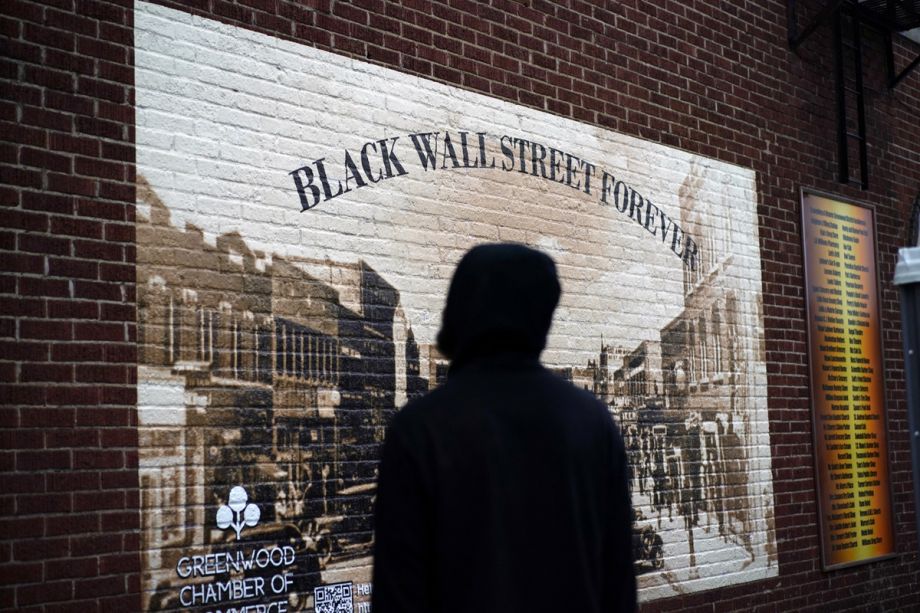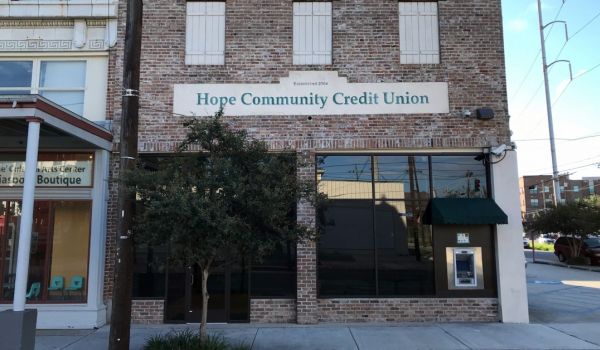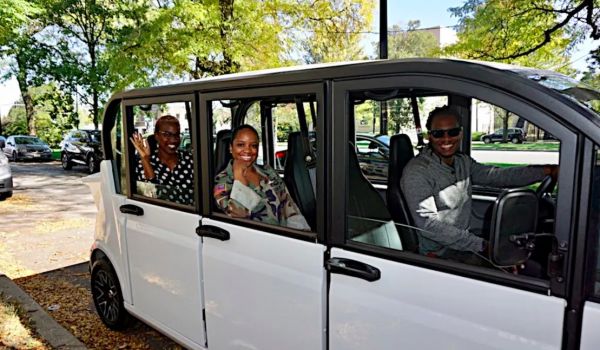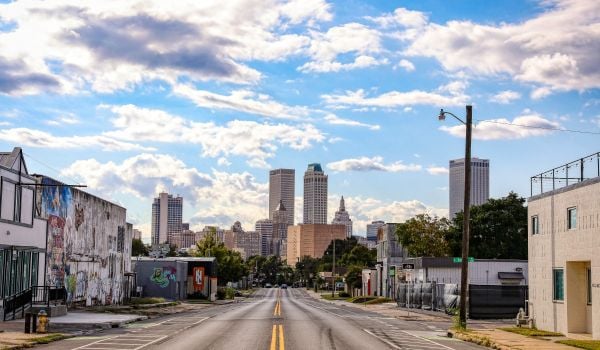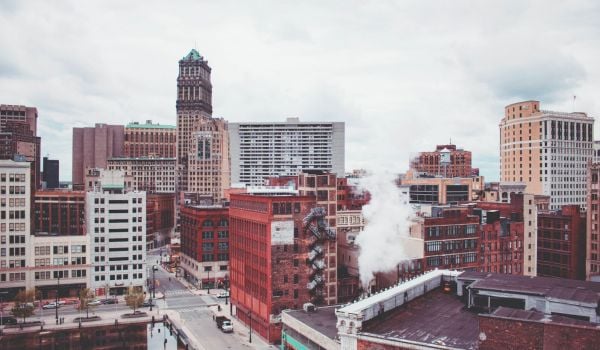The Phoenix rises from the ashes, as the saying goes. And what’s rising from the ashes of the massacre in 1921 of the Greenwood section of Tulsa, Oklahoma, that left a once-thriving black community named Black Wall Street torched, is a renewed spirit of Black entrepreneurship. Businesses, residents and politicians are enacting their own Build Back Better plan for Greenwood. One of the newest and most intriguing initiatives is being led by 26-year-old entrepreneur and activist Tyrance Billingsley II who wants to build a hub of Black tech entrepreneurs.
The Tulsa native launched the Black Tech Street initiative last June on the centennial of the two-day Tulsa Race Massacre, where mobs of white residents attacked Black residents and businesses of the Greenwood District in Tulsa. The attack is now recognized as one of the worst incidents of racial violence in American history. In addition to taking as many as 300 lives, the mob destroyed Black Wall Street through looting, fires and violence, taking away huge potential for generational wealth and entrepreneurial success in Tulsa’s Black community.
Billingsley sees the business of technology as one of the fastest and most efficient ways to regain some of that lost generational wealth, given how relatively quickly a company can go from startup to a multi-million enterprise. His vision isn’t just to build a stronger economy in Greenwood, but to also increase the participation of Black workers in the tech space. The organization’s mission plan, among other things, is to mobilize resources and encourage tech companies to build branches in Tulsa to spur Black employment in technology.
“My inspiration was the story of Black Wall Street,” Billingsley says. “That’s where it came from — growing up here, hearing about it, speaking with its descendants. That’s the most tangible inspiration anybody could ask for.”
What makes Black Tech Street especially promising is its sturdy support from strong partners such as SecondMuse, an impact and innovation company with 13 offices across the globe; it’s funding from local organizations; and its knowledge and willingness to use emerging financial options such as NFT cryptocurrency to raise funds.
The push to rebuild Greenwood’s Black Wall Street — as well as the call for reparations — grew strongly during the 2020 Black Lives Matter protests. But Greenwood residents had tried to rebuild their community themselves just four years after the massacre. A Brookings report, which estimated the immediate and long-lasting financial impact of the massacre, noted that the rebuilding was derailed during the 80s due to racist urban planning practices, such as eminent domain, rezoning, highway instruction and redlining. Those policies led to plunging property values for Black residents. In addition, Black residents own just 1.25% of the area’s 20,000 businesses even though they make up 10% of the population.
The Bookings report, which also argued for reparations for Greenwood residents, noted that residents back in 1921 filed $1.8 million in damage claims to the 1,256 homes that were destroyed, and the value of those homes would be equal to $150 million today.
Restoring the stolen wealth of Greenwood rests on activists and entrepreneurs like Billingsley.
Billingsley isn’t a coder, nor necessarily a tech geek. But as a businessman, he identified tech as a way to generate wealth relatively quickly. He also sees Black Tech Street as a way to encourage Black inclusion in the tech field. In addition, Billingsley believes Greenwood would’ve evolved into a major tech hub naturally if not for the massacre. Technology is the medium of the new world and Black entrepreneurs and workers just have to be more involved, he argues in a TEDx Talk. He estimated that there will be 4.3 million high-paying tech jobs available in the U.S. by 2030, and it’s critical for Black Americans to get their share.
“If (Greenwood) was not destroyed, it would be nothing more than the nation’s premier Black tech hub, had it been able to persist and keep innovating,” believes Billingsley, who graduated from Oklahoma State University Institute of Technology. “The tenacity and out-of-the-box thinking of Black entrepreneurs (of Greenwood) remind me of the technology industry.”
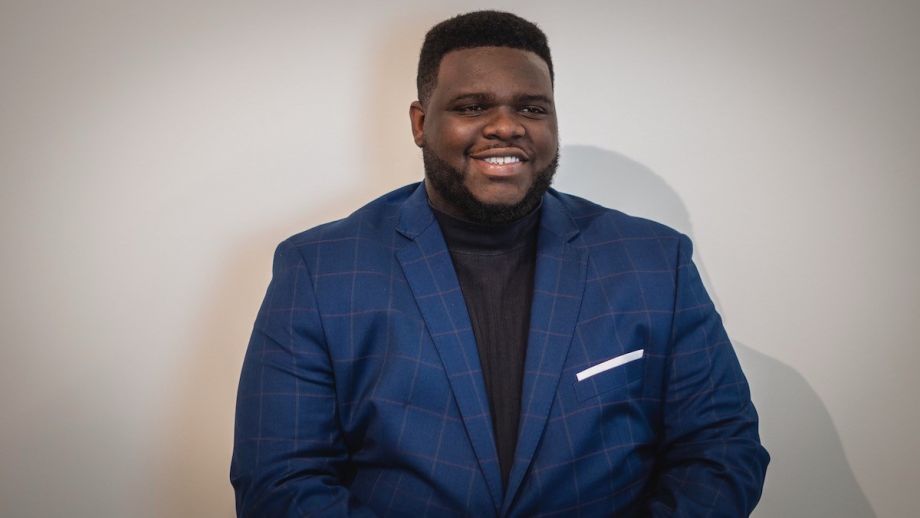
Tyrance Billingsley II (Photo courtesy of Black Tech Street)
Black Tech Street is a fledgling initiative, but Billingsley thinks his homegrown pedigree and focus on enlisting community support set his program apart. Todd Khozein, co-CEO of SecondMuse, which helped Billingsley launch Black Tech Street, agrees. He cites Billingsley’s “deep community roots” and “strong supporters in the community that (have provided) monetary support” from organizations such as the George Kaiser Family Foundation and the Charles and Lynn Schusterman Family Philanthropies.
“SecondMuse is excited to be a part of this work by providing the operational infrastructure to support Tyrance and Black Tech Street,” Khozein says.
That operational support from SecondMuse, which specializes in creating economic ecosystems that are more equitable and inclusive, includes lending personnel and other resources to help Black Tech Street build a framework and network to design its tech hub.
Billingsley says he has already raised $500,000 and is “still raising more.” A small amount of that funding came from Hewlett-Packard. In May, Black Tech Street also partnered with HP to add seven Tulsa educators as HP Fellows through the Reinvent the Classroom program, which is a collaboration between Digital Promise, HP, Microsoft and Intel that is trying to bridge the digital learning gap across, race, geography and class through innovative educators. There are 75 HP Fellows across the country, and this is the first time that educators came exclusively from one region.
And in keeping with his initiative’s tech focus, Billingsley turned to the emerging world of cryptocurrency to help raise funds. Last summer Black Tech Street launched the Black Tech Street Centennial Coin NFT, which honors the memory of one of Black Wall Street’s founders, O.W. Gurley. The coin grossed about $4,000 in the initial auction, but Billingsley is optimistic that it will create a recurring revenue stream for the organization.
Billingsley is also trying to build support networks for entrepreneurs looking to relocate to Tulsa, while calling on companies to make it easier for Black workers to work remotely from Tulsa if necessary. Already, though, major tech companies such as Microsoft and Lumen Technologies have already opened branches in Greenwood. The long-standing goal is to take Black Tech Street national — and even global.
“There’s more momentum behind us now than there’s ever been,” Billingsley says. “I feel Tulsa is in a good place.”
This article is part of The Bottom Line, a series exploring scalable solutions for problems related to affordability, inclusive economic growth and access to capital. Click here to subscribe to our Bottom Line newsletter.
Christopher C. Williams is a New Jersey-based freelance financial writer. He worked for many years with Dow Jones Newswires and Barron’s Financial Weekly and has contributed to publications including the Wall Street Journal, The New York Times and Essence magazine. He focuses on the intersection of business, economic equity and racial justice.



